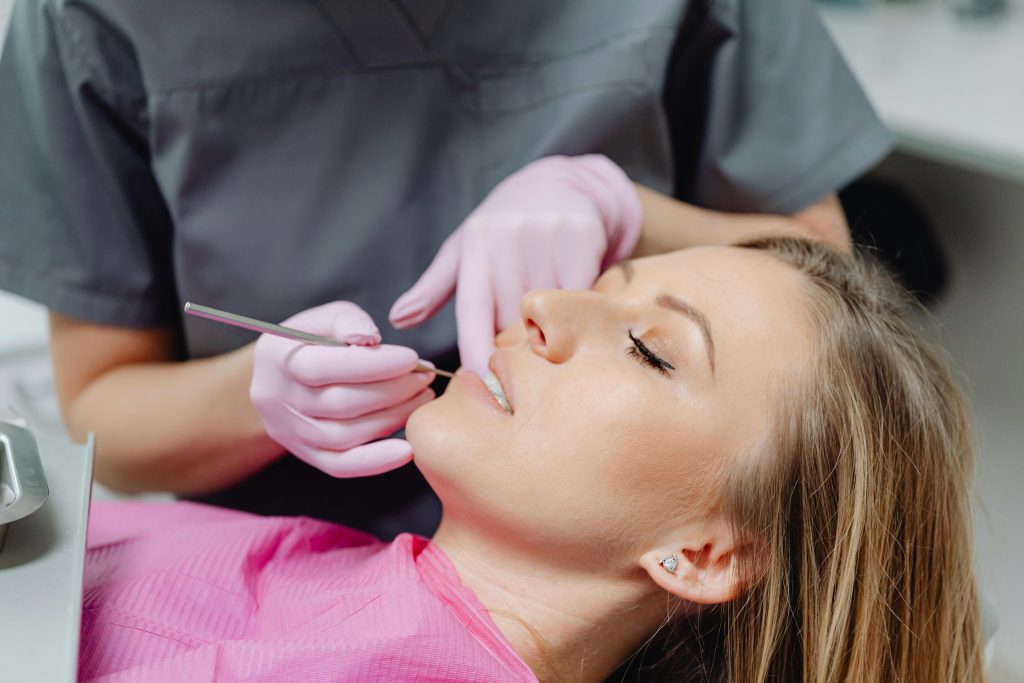Treatments
Sensitive Sore Teeth Treatment in Lahore
When to See a Dentist:
Check it out if you’re unsure. Set up a dental appointment as soon as you can if:
- You are in pain
- Pain lasts longer than a day or two
- The pain is severe or unbearable
- You have a fever, earache or pain when you open your mouth wide
Are You in Pain?
For urgent dental care, contact us if you’re in pain. We’ll promptly arrange an appointment for you.

Symptoms of Sensitive Teeth:
Pain or discomfort often signals a more severe issue. It may vary or worsen gradually. Chewing can cause sharp pain, while hot or cold liquids may increase the discomfort. Sweet or acidic foods can also heighten sensitivity or tooth soreness.
Cold air or mouth breathing can sometimes worsen sensitivity or pain. Tooth sensitivity occurs when the inner dentin layer is exposed due to enamel wear on the outer layer.


Causes of Teeth Grinding:
One of the primary causes of tooth sensitivity is unprotected dentine. There are several possible causes for this. Common causes include plaque buildup, dental decay, receding gums, chips in your tooth, and gum disease. Additional factors include:
- Acidic food, drink or mouthwash
- Bruxism, or grinding and clenching your teeth
- Brushing your teeth too hard
- Some tooth whitening products
To maintain good oral health, maintain regular dental and hygienist appointments. We all occasionally need reminders of the best oral hygiene practices.
Get Prepared:
- When did the pain start?
- How severe is it?
- Where do you feel sensitivity?
- What makes it worse?
- What makes it better?

What Next
Explore therapeutic strategies to gain further insight. Book a dental consultation for detailed information on your concerns.
FAQs
01. How much does it cost to treat sensitive teeth?
The cost of treating sensitive teeth varies based on the underlying cause. It is recommended to consult a dentist to evaluate the pain as it may indicate a more serious issue. Your dentist will determine the cause and provide cost details. Book an appointment for sensitive teeth online.
02. Why are my teeth sore or sensitive?
Sensitive teeth can have various causes, often due to exposed dentin. Overbrushing or consuming hot, cold, acidic, or sugary foods can contribute to this. It may also indicate tooth decay or gum disease. Consult your dentist to discuss discomfort and sensitivity.
03. How can I treat sensitive teeth?
Prevention is vital for oral health. Use a soft toothbrush, maintain regular dental hygiene, and limit acidic/sugary foods. Try a sensitive toothpaste, but consult a dentist to address potential underlying dental problems.
04. Why are my teeth sore during spring?
Reports suggest spring is the peak season for sensitive teeth. Increased pollen and dust can trigger hay fever and sinus problems, leading to tooth and gum discomfort. Inflamed sinuses can cause severe pain, often mistaken for dental issues. See a dentist or doctor to evaluate potential hay fever or sinus-related causes.
05. I’m anxious about visiting the dentist.
We understand. Dental fear often stems from past negative experiences. Our caring dentists empathise with your concerns. Openly share your feelings, whether it’s nervousness, fear of pain, or worries about treatment costs. Our goal is to ensure your comfort and alleviate any apprehensions you may have.
06. Can sensitive teeth be prevented?
Proper oral care and regular dental visits can minimise the risk of sensitive teeth. Follow these tips:
- Brush your teeth twice daily and floss once daily to maintain good oral hygiene.
- Schedule biannual hygiene appointments with a dental professional.
- Arrange an annual dental exam and x-rays for routine check-ups.

